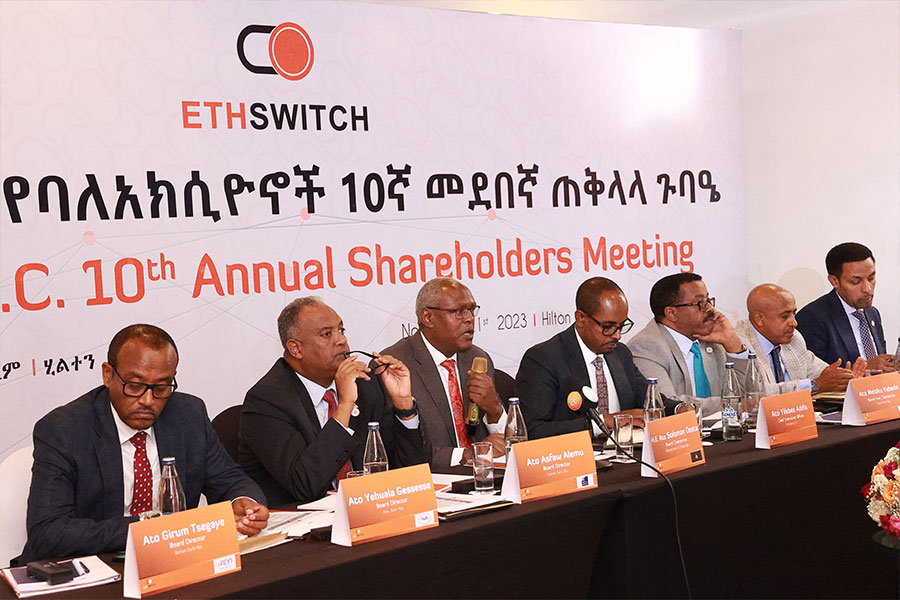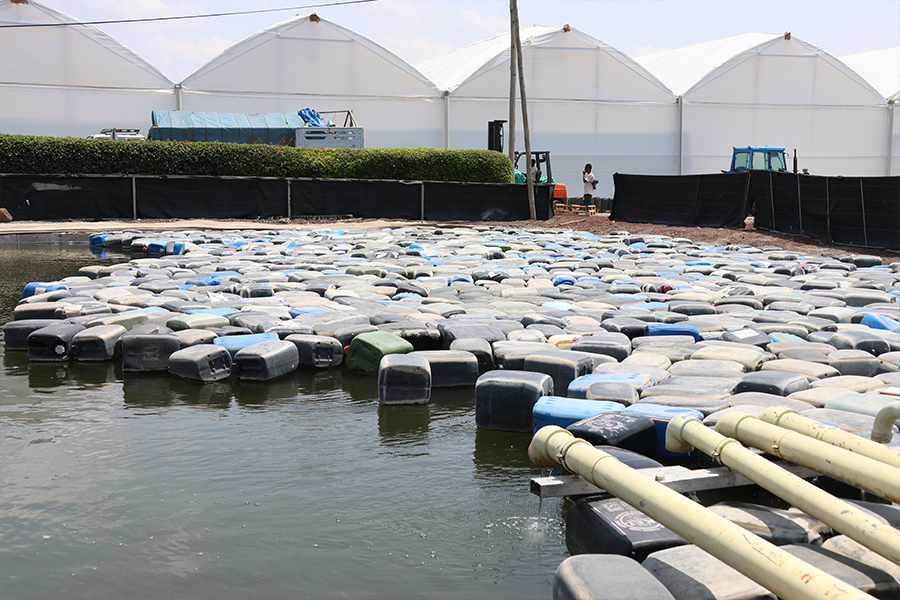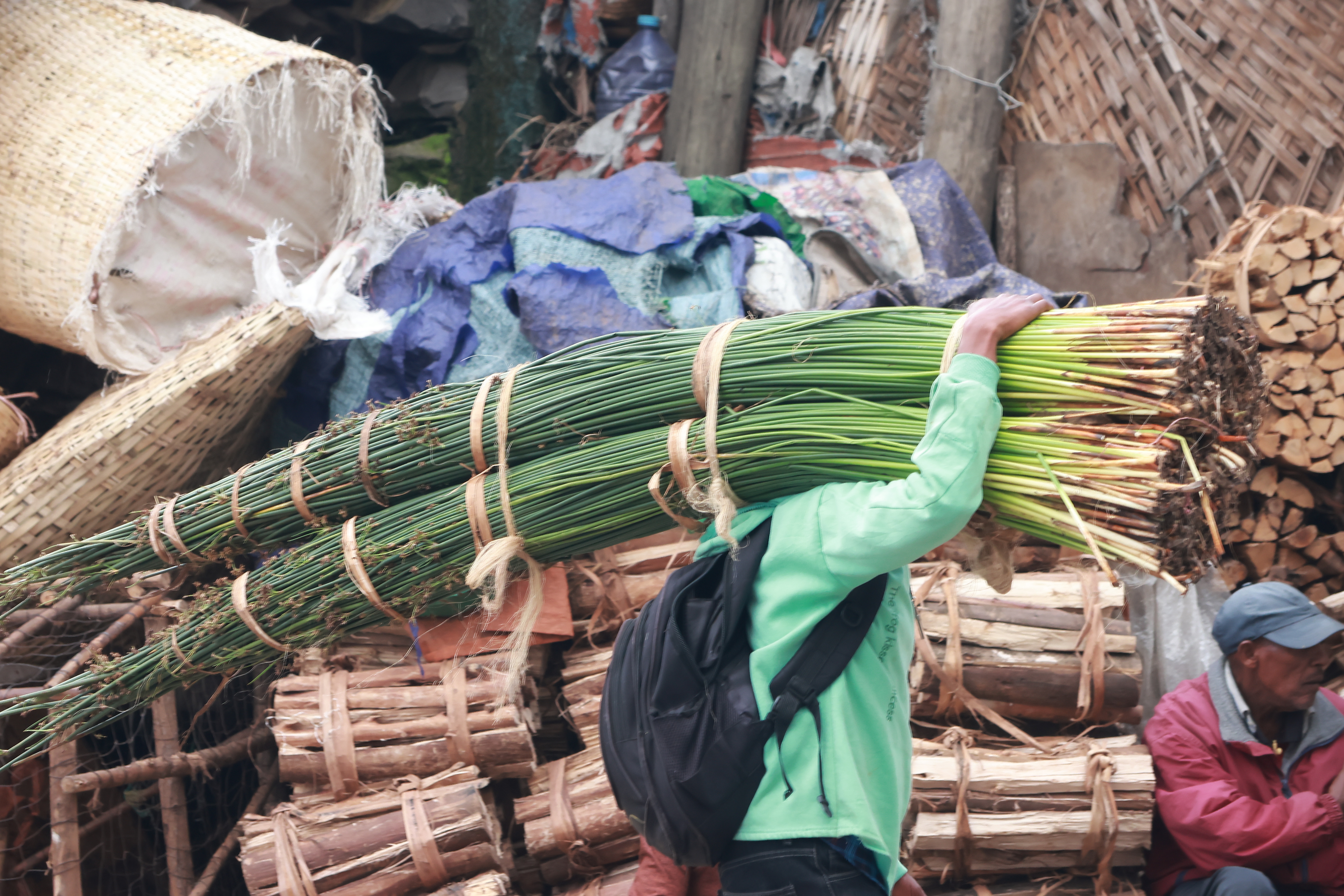
Aug 21 , 2021
By Seble Hailu
Abay is an existential issue for Ethiopia as much as the Nile is for Egypt. To claim otherwise is to insist on a colonial mentality, where one set of people matter more than others, writes Seble Hailu (PhD), a psychologist.
Earlier this month, I was asked to present the “Psychological Perspectives of the Contemporary British and Egypt Stance on Abay River” for a workshop. I started reading different articles and listening to various discussions on the White and Blue Nile rivers. The prevailing concept in all the conversations were the historical colonial arrangements, treaties, and signatories.
My curiosity increased to learn about colonial psychology, which was when I came across an article titled "The Coloniser-Colonised Mindset." The report gave summary points on how to process "Whiteness" as an ideology wherever it is found, written by Anti-Racism Study Dialogues Circles.
"Whiteness comprises an ethnocentric worldview, beliefs, values, assumptions, interpretations, feelings, and action dispositions based on a working assumption or conviction of European moral, cultural, and ‘biological' superiority, which may not be conscious or intentional, but it is an internalised reality manifested in behaviors that dominate the social space,” it read. "Historically, whiteness was developed in the context of colonialism in the era of the Enlightenment. For this reason, the coloniser mindset describes a way of thinking, valuing, feeling, and behaving that reflects a norm of Euro-white dominance over non-white, subordinated peoples."
This frame resonated for me with what transpires in the mentality of the Egyptians over the usage of the Nile River. The power dynamics of the historic coloniser-colonised roles defined intergroup relationships for the former of the two to exploit the resources (land, labour) of the less powerful, the latter group.
The historical relationship of colonisers was formed by the domination of white European over non-whites, the colonised nations. The power dynamics is set as the norm of treating one another hierarchically – domination and subordination, as the lower status should abide by what was arranged for them. The colonisers’ assumptions and values are considered as the universal norm and were entitled to use others’ resources.
The ideology of "whiteness" is operating in the context of the Nile river, commonly known as Abay in Ethiopia. The country is being pushed around to accede to the demands of the norms and expectations set by the coloniser-colonised arrangement. However, Ethiopia decided not to abide by that and instead be its own agent of fulfilling its collective needs, not taking the role of a victim of others’ decisions.
Egypt’s historical stance shows that was their reality under the British colonial rules. The coloniser-colonised relations were deeply rooted, and unconsciously reflected in their sense of entitlement over the Nile river. Ethiopia is saying that it is not accommodative of the status quo of this imbalance of geopolitics, claiming the power of self-determination. We can choose what to take and what not to take. As Egypt and Sudan chose not to abide by the other Nile basin countries’ decision of 2015, because they were not part of it, the same logic can be used for Ethiopia to reject the decision of others made in its absence.
Since the reference point is the colonial agreement, we keep coming back to the basis that gave sole proprietor entitlement to Egypt or duo-proprietorship with Sudan. Ethiopia is claiming not just a trio but an “eleventho,” with 10 other countries (Sudan, South Sudan, Egypt, Rwanda, Tanzania, Uganda, Burundi, the Democratic Republic of Congo, Eritrea, and Kenya) a stake in the Abay River.
This mentality is reminiscent of an Amharic saying, "kebalish bale yibeltal’na shiro awishign." The context is that two married women are about to cook lunch for their husbands. One did not have the necessary ingredients to prepare the meal, thus asked her neighbour, who has just enough to prepare for her husband. But when the neighbour refused, the lady responded, "My husband is greater than yours, so you should lend me the food items."
That is the kind of mindset Ethiopians are rejecting, calling it grotesque inequality. They accept the fact that Egyptians are equally human, deserving of dignity, development, and prosperity. However, this is not at the dehumanising expense of Ethiopians. Egyptians are not more human.
Abay is an existential issue for Ethiopia as much as the Nile is for Egypt. I concur with Sileshi Bekele (PhD), minister of Water, Irrigation & Energy, when he stated at the Security Council that his own citizens would not have migrated to the Middle East, to a desert place, only to return humiliated had the country been able to use its natural resources.
What is more existential than this?
When we talk about the utter dependence of Egypt and Sudan on the Nile River and say nothing about that of Ethiopia's, it is an argument that one’s existential threat is greater than that of another country’s similar predicament. We reject this and say our survival and development plan does matter equally.
Then, we ask the right question, how do we share these natural resources? What is an equitable share?
Egypt and Sudan have come a long way, grudgingly accepting the reality. However, the negotiations need to continue acknowledging all needs, building relationships instead of operating by the unconscious mindset of power domination. Ethiopia is choosing the principles of justice and fair use of resources. The mindset of colonialism is based on greed, and not on equity.
Following Ustath Jemal Beshir's programme "Kings of the Nile" is helpful to understand our Egyptian fellows' mindset, perception, and communication. He does a wonderful job translating from Arabic and presenting what transpires in Egypt as far as the Nile River is concerned. I keep getting the message of knowledge gaps about Abay, taking the dominant space of claiming one's historical rights, appealing emotionally to like-minded people who believe in domination-subordination relations, and pursuing using all sorts of communication to subjugate Ethiopia's claims.
Gordon Allport, an American pioneer psychologist, described in his classic book, "The Nature of Prejudice," internalised oppression, which he called colonial mentality. He describes it as the oppressed person believing in the right of the oppressor. By internalising oppression, the oppressed becomes much like the oppressor, and even begins to adopt and act with prejudice.
This could be reflected in Egypt. They have been colonised by the British and now show a similar attitude as the oppressor, demanding to set the rules, normalising the unfair historical legacy, and dominating the social space. The oppressed become the oppressor. As some say, hurt people hurt people.
Otherwise, where did the solo entitlement mentality come from?
The third role of Newton Law states, "For every action, there is an equal and opposite reaction."
Similarly, this physical law works in social rules. There are equitable consequences for actions – the sowing and reaping law. The ramification of slavery and colonialism have created chaos in human power relations, and resource utilisation and sharing. The contemporary terminology may be different, but the extension of this selfish ideology remains in some systems. Therefore, we need to address the systemic causes of the Nile disputes.
There are, of course, consequences for the agreement signed in the colonial era. The psychology of the water prerogative of Sudan and Egypt is predominantly the prerogative of the colonial mindset. Ethiopia is paying for it until now, reversing and claiming its own space in the table is the only way that emancipates it to use its natural rights. Ethiopians respectfully relinquished the position of being targets and have been taking our power position to negotiate justice for all. Equity should be the principle, not domination and subordination.
I am a Rotarian. Rotary is an international organisation that stands for humanity. There are clubs all over the world that ties all Rotarians in commonly held principles. These include “The Four-Way Test,” which is a nonpartisan and nonsectarian ethical guide for Rotarians to use for their personal and professional relationships.
It goes like this: “Of the things we think, say, or do, we ask and answer to ourselves: Is it the truth? Is it fair to all concerned? Will it build goodwill and better friendships? Will it be beneficial to all concerned?”
Rotarians Four-Way Test can be used as principles for negotiations because it is inclusive and impartial. When we reset the ground from the colonial domination mindset to an equitable and fair share, we can agree on the major principles of negotiations. Hopefully, Nile basin countries would continue negotiations primarily based on truth – technical facts on the ground – with fairness to all concerned, taking the temporal, historical and natural mandates into consideration. We should also develop a new psychological mindset of collaboration and contemporary collective consciousness and conscientiousness of sharing resources with the aim of benefiting all the 11 countries concerned.
PUBLISHED ON
Aug 21,2021 [ VOL
22 , NO
1112]


Radar | Nov 27,2023

In-Picture | Jun 22,2024

Fortune News | May 24,2025

My Opinion | Oct 21,2023

Radar | Jul 13,2024

Editorial | May 24,2025

Commentaries | Jul 25,2020

Addis Fortune | May 04,2024

Radar | Jan 16,2024

Fortune News | Oct 25, 2024

My Opinion | 131665 Views | Aug 14,2021

My Opinion | 128030 Views | Aug 21,2021

My Opinion | 125993 Views | Sep 10,2021

My Opinion | 123614 Views | Aug 07,2021

Dec 22 , 2024 . By TIZITA SHEWAFERAW
Charged with transforming colossal state-owned enterprises into modern and competitiv...

Aug 18 , 2024 . By AKSAH ITALO
Although predictable Yonas Zerihun's job in the ride-hailing service is not immune to...

Jul 28 , 2024 . By TIZITA SHEWAFERAW
Unhabitual, perhaps too many, Samuel Gebreyohannes, 38, used to occasionally enjoy a couple of beers at breakfast. However, he recently swit...

Jul 13 , 2024 . By AKSAH ITALO
Investors who rely on tractors, trucks, and field vehicles for commuting, transporting commodities, and f...

Jun 28 , 2025
Meseret Damtie, the assertive auditor general, has never been shy about naming names...

Jun 21 , 2025
A well-worn adage says, “Budget is not destiny, but it is direction.” Examining t...

Jun 14 , 2025
Yet again, the Horn of Africa is bracing for trouble. A region already frayed by wars...

Jun 7 , 2025
Few promises shine brighter in Addis Abeba than the pledge of a roof for every family...

Jun 29 , 2025
Addis Abeba's first rains have coincided with a sweeping rise in private school tuition, prompting the city's education...

Jun 29 , 2025 . By BEZAWIT HULUAGER
Central Bank Governor Mamo Mihretu claimed a bold reconfiguration of monetary policy...

Jun 29 , 2025 . By BEZAWIT HULUAGER
The federal government is betting on a sweeping overhaul of the driver licensing regi...

Jun 29 , 2025 . By NAHOM AYELE
Gadaa Bank has listed 1.2 million shares on the Ethiopian Securities Exchange (ESX),...